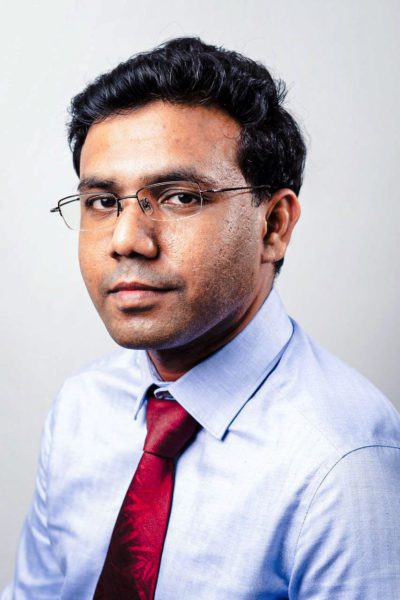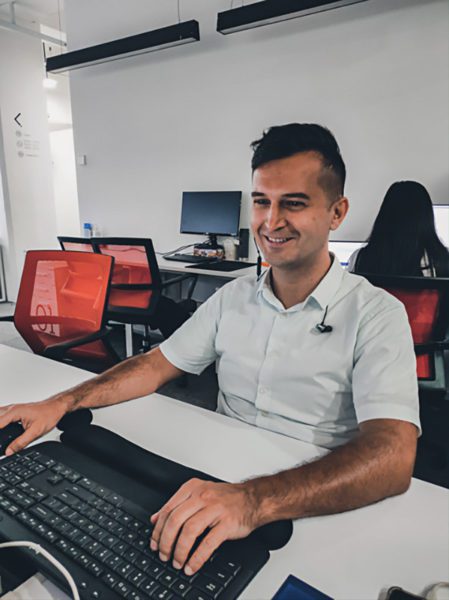Swedish Disruptor Shakes Up Asia’s Paint Industry
A bold, eco-conscious brand is drawing in a new generation of consumers
A profile of health insights data platform, Oncoshot

Cancer is one of the leading causes of death worldwide. The World Health Organisation (WHO) estimated cancer as the first or second leading cause of death in 112 of the 183 countries examined in 2019. In another 23 countries, it was the third or fourth leading cause.
By 2030, we anticipate 26 million new cancer cases and 17 million new cancer deaths per year, largely accounted for by the growth and ageing of populations. One in six people will be aged 60 years or over. That translates into 1.4 billion people, up from 1.2 billion in 2020. By 2050, this number will nearly double to 2.1 billion.
People are living longer; life expectancy beyond 60 is almost guaranteed. This contributes to growth in both the size and proportions of older persons in our populations. While this phenomenon known as population ageing started in high-income countries such as Japan, where 30% of its people are already above 60 years, it is now low- to medium-income countries going through this change. Two-thirds of the global population above 60 years is expected to come from these parts of the world by 2050.
Research has shown that the likelihood of older persons developing cancer is 11 times higher than that of younger people. While cancer can arise at any age, risk factors for specific cancers accrue over the years while cellular repair mechanisms become less effective. The following graph illustrates that a bulk of cancer incidence (56.3%) comes from older persons.
The years of life lost or lived with disability due to cancer give rise to opportunity costs in income, which can severely hurt a country’s GDP and national productivity levels in the long term.
Cancer does not just affect the person with the disease; it involves family and friends too. The societal value of unpaid caregiving is estimated to transcend $470 billion annually, the trade-off for the high value care they often provide. The average working-age caregiver cares for their loved ones while facing the rigours of meeting work demands as they pursue professional goals. Caregivers cannot cast aside work responsibilities as it is crucial to family income and employment-based health insurance coverage.
So how do we care for present and future cancer sufferers and the people around them?

Dr Huran Sivaraj
One Singaporean medical oncologist proposes enhancing the enrolment of patients into cancer clinical trials.
While practising, Dr. Huren Sivaraj had trouble understanding the landscape of clinical trial options for his patients at any point during their treatment journey. Trial options were not transparent or visible within the healthcare institution.
He found that when there is poor visibility of trials, oncologists often continue to offer the standard of care treatments instead of considering clinical trials for late-phase developmental cancer therapies that can be implemented alongside the standard ones.
Trial options tend to be offered after patients have exhausted all standard therapy options. By this point, patients are typically deconditioned and symptomatic, let alone fit enough to participate in trials.
Dr Sivaraj felt that if his patients could access developmental therapies sooner and throughout the entire treatment journey (rather than only when all hope is lost), they would have improved survival outcomes.
When it comes to clinical trial enrolment, doctors typically rely on their register of patients and maybe a few others through doctor-to-doctor referrals. The issue with this is that not enough doctors refer their patients to other doctors and investigators, resulting in difficulty when it comes to recruiting eligible patients.
A major reason for this is the lack of a robust communication system able to connect patients, doctors, and the pharmaceutical companies that conduct the clinical trials.
It is estimated that 85% of all clinical trials will experience delays, with 94% experiencing delays lasting longer than a month and poor patient recruitment as a significant contributor. The financial consequences of this can cost anywhere between $600,000 to $8 million per day of delay.
Dr Sivaraj felt that if his patients could access developmental therapies sooner and throughout the entire treatment journey, they would have improved survival outcomes.
Hence, Dr Sivaraj founded Oncoshot in 2018 with co-founder Ruslan Enikeev, a data science engineer and creator of Map of the Internet — a popular web traffic data-visualisation tool.
Addressing SDG 3 – Good Health and Well-being, Oncoshot is a health insights exchange platform that leverages its proprietary clinical trial matching artificial intelligence (AI) technology to address the inefficiencies of cancer clinical trials. It targets the rigorous clinical trial enrolment process that requires a careful and meticulous approach to choosing participants that fit strict eligibility criteria.
Oncoshot is a health insights exchange platform that leverages its proprietary clinical trial matching AI technology to address the inefficiencies of cancer clinical trials.
The Oncoshot platform serves as a bridge between leading regional healthcare institutions and contract research organisations (CROs) and global biotechnology and pharmaceutical companies to facilitate data-driven cancer clinical trials while accelerating enrolment into actively recruiting ones.

Oncoshot co-founder Ruslan Enikeev
When developing a trial, companies traditionally depend on researchers’ approximations and historical data from comparable trials to work out enrolment forecasts. Realistically, the circumstances encompassing each trial differ too inordinately to anticipate based on past experiences. In addition, historical data does not account for patient deaths which may cause an overrepresentation of potentially eligible patients.
The Oncoshot platform generates relevant hospital-approved real-time potential matches for trials in minutes, sorting through over 100,000 de-identified patient profiles spanning its three initial markets. With the traditional approach, this process can take weeks to months.
The clinical trial ecosystem in Singapore has been advancing rapidly with plenty of help and collaboration from the public and private sectors. However, many institutions struggled to find an ideal model for collaboration with data in a manner that meets their security, privacy, and access requirements.
To ensure patient data is secured, only patient data relevant to the specific clinical research is first de-identified and restructured before being transferred to the healthcare institution’s on-premise, Oncoshot platform, where it is analysed to provide population-level insights. The Oncoshot platform can be deployed within the trial site’s server so that patient-level data stays within the institution’s internal cyber security system.
Furthermore, Oncoshot’s platform is appraised by PricewaterhouseCoopers (PwC), a leader in IT risk consulting and security and the Singapore government’s choice IT consultant for reviewing the National Electronic Health Record system.
Presently, Oncoshot’s partners include pharmaceutical companies such as AstraZeneca and Novartis, CROs, and six cancer research organisations spread across Singapore, Australia, and India.
Oncoshot’s next funding round will be June this year and will go towards the expansion of business in Australia and India.
—
Disclosure: The author’s firm, Milltrust International LLP, is an investor in Oncoshot.
Related Content
Comments
Deep Dives

Featuring
Clarisse Awamengwi
IE Correspondent
July 17 - 12:00 PM EST

Featuring
Russell McLeod
July 24 - 12:00 PM EST
RECENT
Editor's Picks
Webinars
News & Events
Subscribe to our newsletter to receive updates about new Magazine content and upcoming webinars, deep dives, and events.
Become a Premium Member to access the full library of webinars and deep dives, exclusive membership portal, member directory, message board, and curated live chats.
At Impact Entrepreneur, we champion fearless, independent journalism and education, spotlighting the inspiring changemakers building the Impact Economy. Diversity, equity, sustainability, and democracy face unprecedented threats from misinformation, powerful interests, and systemic inequities.
We believe a sustainable and equitable future is possible—but we can't achieve it without your help. Our independent voice depends entirely on support from changemakers like you.
Please step up today. Your donation—no matter the size—ensures we continue delivering impactful journalism and education that push boundaries and hold power accountable.
Join us in protecting what truly matters. It only takes a minute to make a real difference.
0 Comments